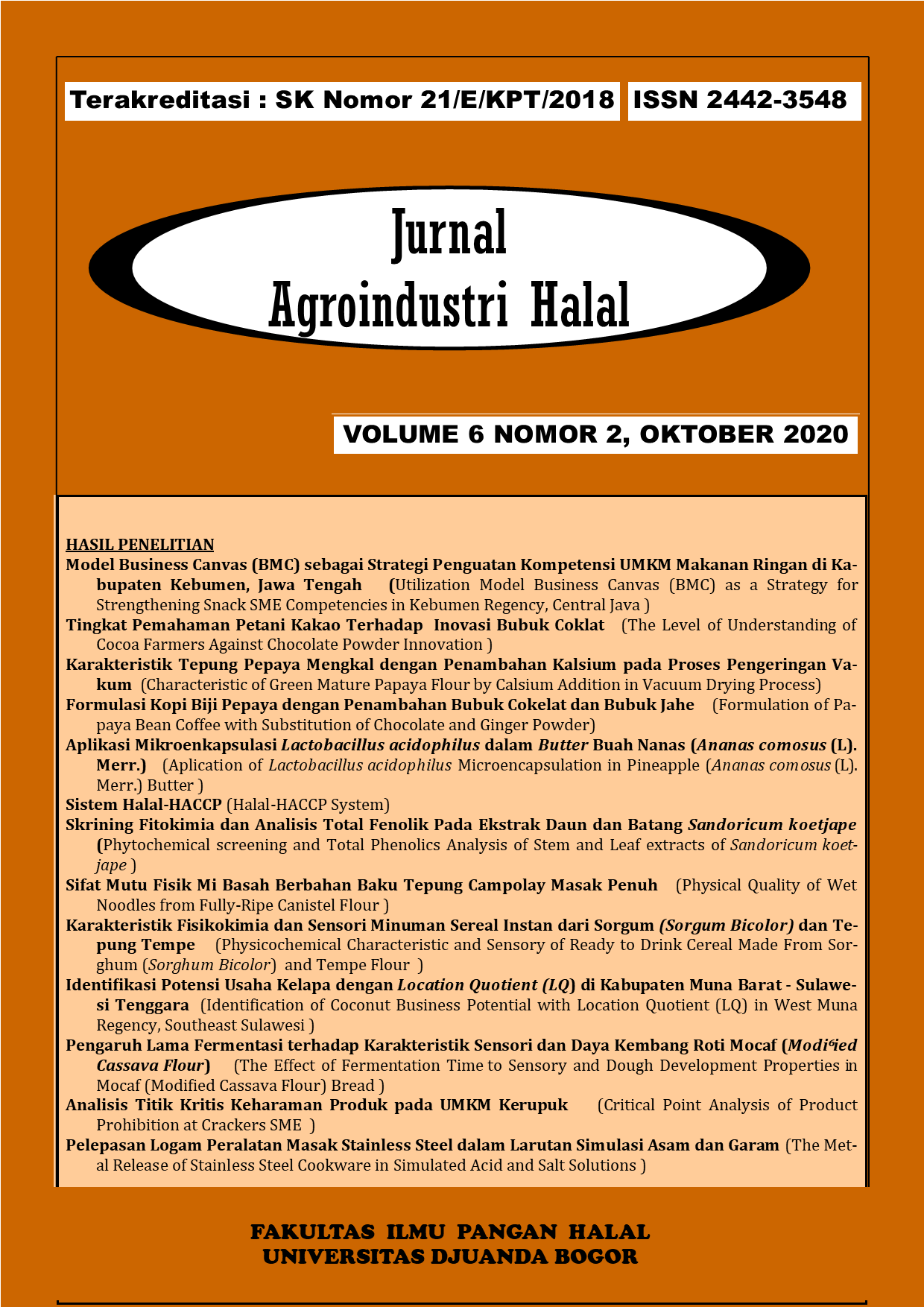Aplikasi Mikroenkapsulasi Lactobacillus acidophilus dalam Butter Buah Nanas (Ananas comosus (L). Merr.)
DOI:
https://doi.org/10.30997/jah.v6i2.2788Abstract
Microencapsulation is a technique that can improve the viability of probiotics and protect the cells from adverse environment by entrapping the cell inside a bead matrix. Probiotic strains Lactobacillus acidophilus was microencapsulated by an emulsion method using sodium alginate, palm oil, and Tween 80. The aim of this research were to produce microencapsulated L. acidophilus by emulsion method and evaluate the stability of microencapsulated probiotic during storage in pineapple fruit butter. Microencapsulation could protect probiotic during storage (significantly different (p=0,05)) than without microencapsulation. During two weeks storage, free cells decreased dramatically (2,5 log CFU/g) than encapsulated cells (1,2 log CFU/g). Storaging microencasulated probiotic in refrigerator temperature (4°C) caused microencapsulated probiotic had longer shelf life (22 days) than room temperature (9 days). pH of pineapple butter containing microencapsulated probiotic cells were found as more stable during storage than were the free cells.Downloads
Additional Files
Published
2020-10-15
How to Cite
lestari, D., Marvina, M., & Pramitasari, R. (2020). Aplikasi Mikroenkapsulasi Lactobacillus acidophilus dalam Butter Buah Nanas (Ananas comosus (L). Merr.). JURNAL AGROINDUSTRI HALAL, 6(2), 146–153. https://doi.org/10.30997/jah.v6i2.2788
Issue
Section
Articles
License
Authors who publish with Jurnal Agroindustri Halal agree to the following terms:
- Authors retain copyright and grant the journal right of first publication with the work simultaneously licensed under a Creative Commons Attribution 4.0 International License that allows others to share the work with an acknowledgement of the work's authorship and initial publication in Jurnal Agroindustri Halal.
- Authors are able to enter into separate, additional contractual arrangements for the non-exclusive distribution of the journal's published version of the work (e.g., post it to an institutional repository or publish it in a book), with an acknowledgement of its initial publication in Jurnal Agroindustri Halal.
- Authors are permitted and encouraged to post their work online (e.g., in institutional repositories or on their website) prior to and during the submission process, as it can lead to productive exchanges, as well as earlier and greater citation of published work








